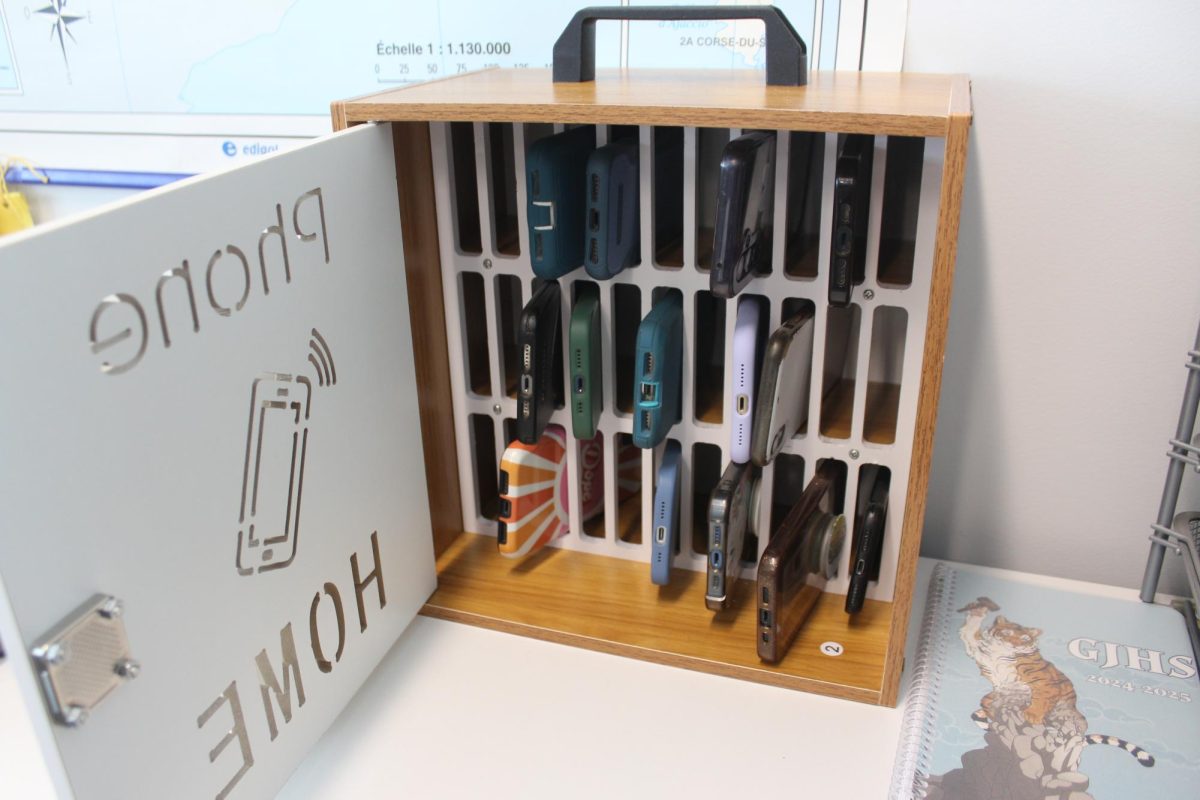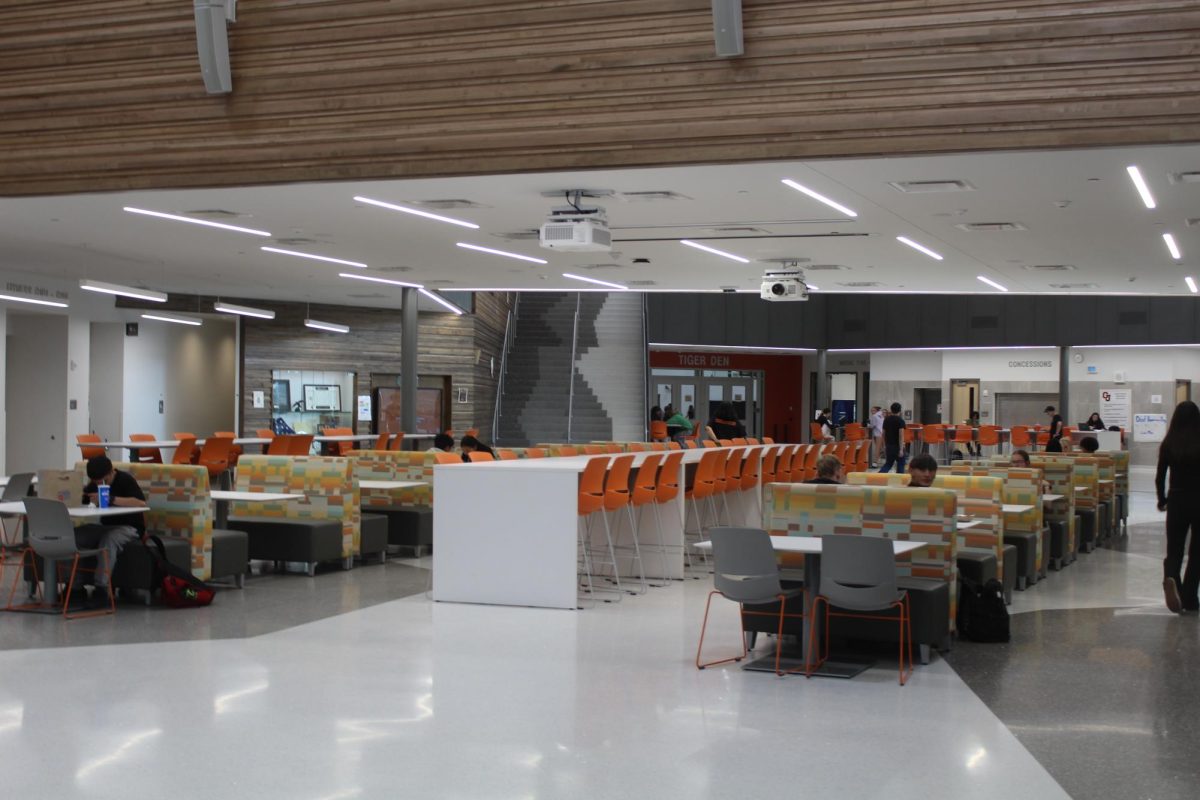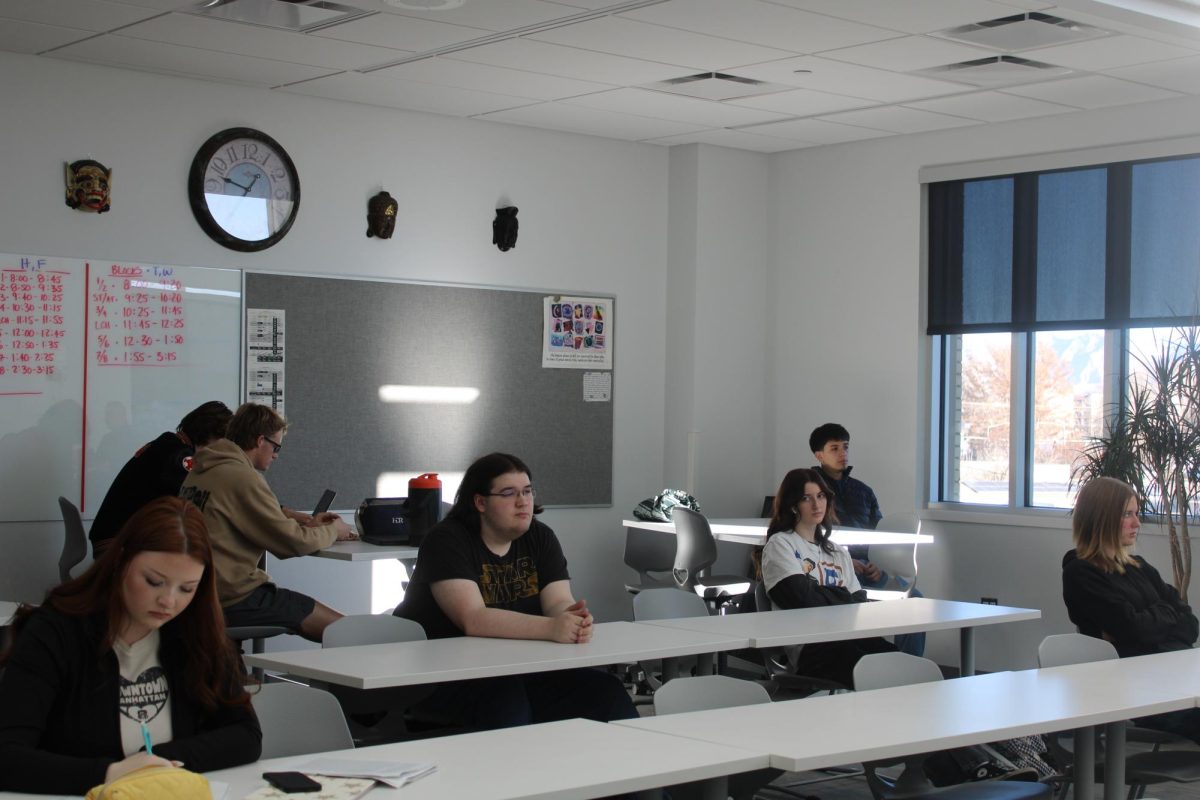Grand Junction High School focuses on “workforce readiness” and preparing students for professional environments, yet implements policies that treat us like children. The new phone policy ignores professional expectations and complicates learning self-regulation, teaching students that they can’t make decisions for themselves.
At the old school, the regulations around phone use were more lenient. Students could use phones to do classwork, play Kahoot, or when a student was done with work, they could use their phone to pass the time. Admittedly, these rights were frequently abused.
“Sometimes kids wouldn’t even be done with their homework when they were scrolling on their phones,” said GJHS senior Kaylie Kellerby.
More times than I could count, I would see students ignoring their assignments in favor of scrolling on their phones during class time. While I’m sure this was annoying to the teachers, many of these students later continued their assignments at home, and those who didn’t had their effort reflected in their grades.
It’s no secret that a phone policy was definitely necessary, however the policy that has been implicated does not seem to be working as well as intended.
By only the third week of school, most of the “phone jails” are almost completely empty or at least contain far less than they did the first day. I know many students who keep their phones in their backpacks during class, or even in their pockets, and get away with it by simply not using it in class.
“I think a better policy might be to let kids have their phones but also give teachers the ability to confiscate them if they use them during instruction or make behavior a part of their grade,” said GJHS senior Anara Munkhtogoo. “[Students] will learn that if they’re on their phone, they’ll get bad grades. Then they can correct their behaviors themselves.”
In the old building, phones could be used when all of your class work was finished or for downtime. Sometimes they could be used during brain breaks to give students a moment to chill out after working. The promise of being able to use your phone after work was finished was enough to motivate many students, including myself.
The District 51 Board of Education implemented the policy to all high schools within the district, on the basis of research from Jonathan Haidt’s book “The Anxious Generation,” which has been heavily criticized in the past for its skewed research. His thesis states that the biggest factor in the teenage depression epidemic is the use of social media.
“I don’t think [the district] realizes that depression doesn’t come from being on your phone in class,” said Munkhtogoo, “It’s a bigger issue than Instagram.”
The same policy being used in the high schools is also being enforced in middle schools district-wide, the main difference being that high schoolers can use their phones during passing periods while middle schoolers cannot.
High schoolers are being held at nearly the same standards as middle schoolers. High schools are meant to prepare students for the “real world,” whether that is in the workforce or college, but by taking all phones, the policy prevents students from making self-regulating habits.
Our high school does need a stricter phone policy, I’m not denying that. However, I don’t think the current policy is the best it could be. The current policy restricts students from building their own habits, a skill that is needed to succeed in life, and pushes the idea that phones are the cause of all issues, which simply isn’t true.
If we want to help our students become better people with better habits, we should be teaching them how to build those habits and allowing them to learn how to balance their work with their socials.









